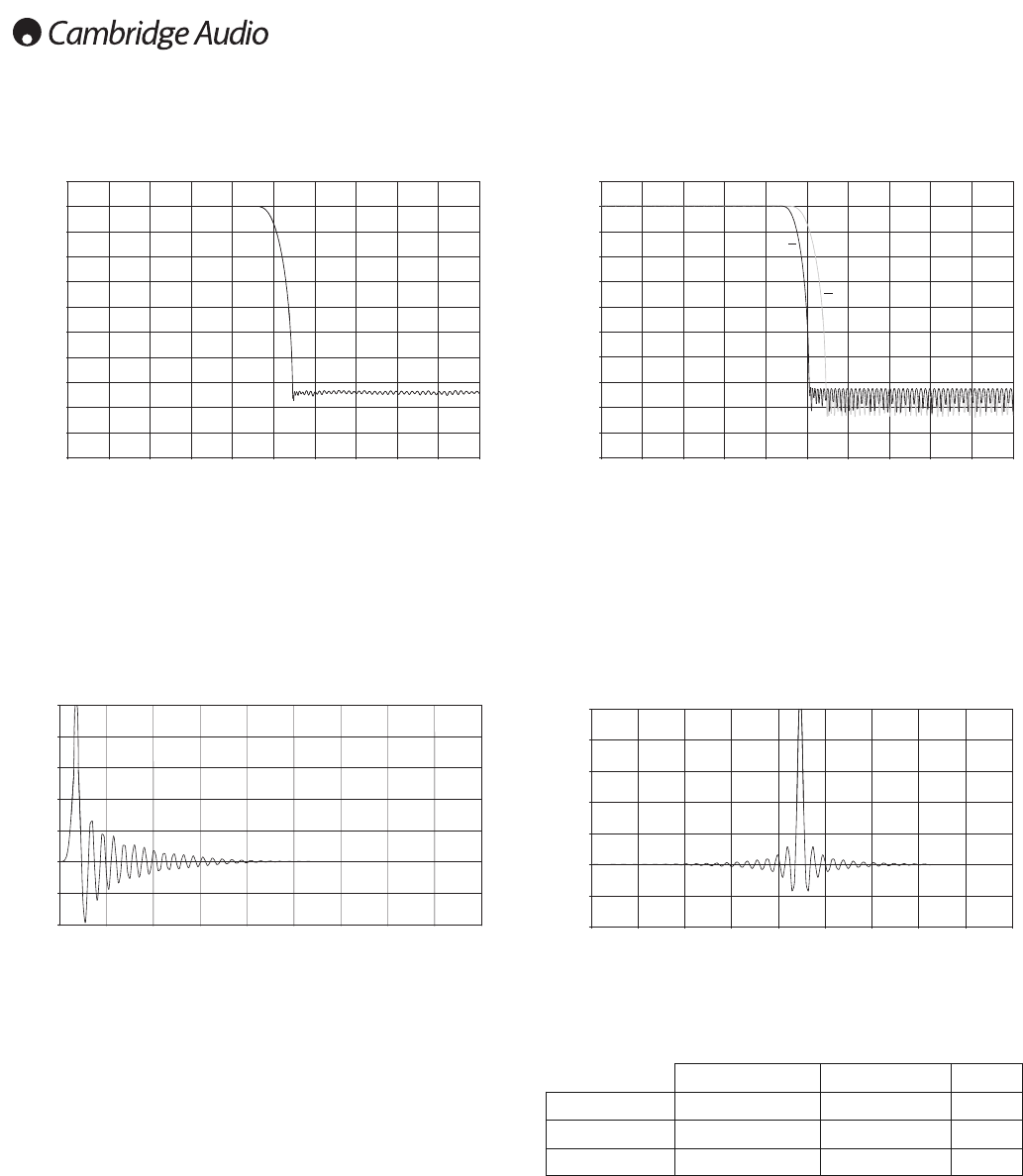
36
Minimum phase filter frequency response Steep filter frequency response
-80
-60
-
40
-20
0
2
0
-200
-180
-
160
-
140
-120
-100
0 0.1 0.2 0.3 0.4 0.5 0.6 0.7 0.8 0.9 1
f
requency/FS (input sampling rate)
Magnitude (dB)
The Minimum Phase filter is another highly regarded audio filter that
offers even lower ripple in the pass and stop bands. Unlike the Linear
Phase filter, group delay is not constant so some time-coherence is lost;
however, phase shift is low and the particular benefit with this filter is that
the impulse response exhibits no pre-ringing.
0
0 20 40 60 80 100 120 140 160 180
Minimum phase impulse response
Time (samples)
Amplitude
-80
-
60
-
40
-20
0
2
0
-200
-180
-
160
-
140
-120
-100
0 0.1 0.2 0.3 0.4 0.5 0.6 0.7 0.8 0.9 1
Linear phase filter
Steep filter
frequency/FS (input sampling rate)
Magnitude (dB)
Our Steep filter is a linear phase filter that has been optimised for stop
band attenuation of close-in aliasing images. Here we have traded a little
attenuation of the very highest frequency response (for 44.1kHz sampled
material it would be -2dB at 20kHz) and a little more pre- and post-ringing
for a very steep attenuation just outside the pass band. The Steep filter
is able to attenuate aliasing at 22kHz by some 80dB.
NNoottee::
All filters exhibit the same ultimate roll-off of approximately 140dB.
The following table shows the filter stop band attenuation for 44.1kHz
material as an example:
Linear Phase Minimum Phase Steep
Roll-off at 20kHz -0.1dB -0.1dB -2dB
Roll-off at 22kHz -10dB -10dB -82dB
Ultimate roll-off 140dB 140dB 140dB
We encourage you to experiment with the filters to determine which sound
best to your ears and using your source equipment/programme material.
0
0 20 40 60 80 100 120 140 160 180
Time (samples)
Amplitude
Steep filter impulse response
Filters continued


















